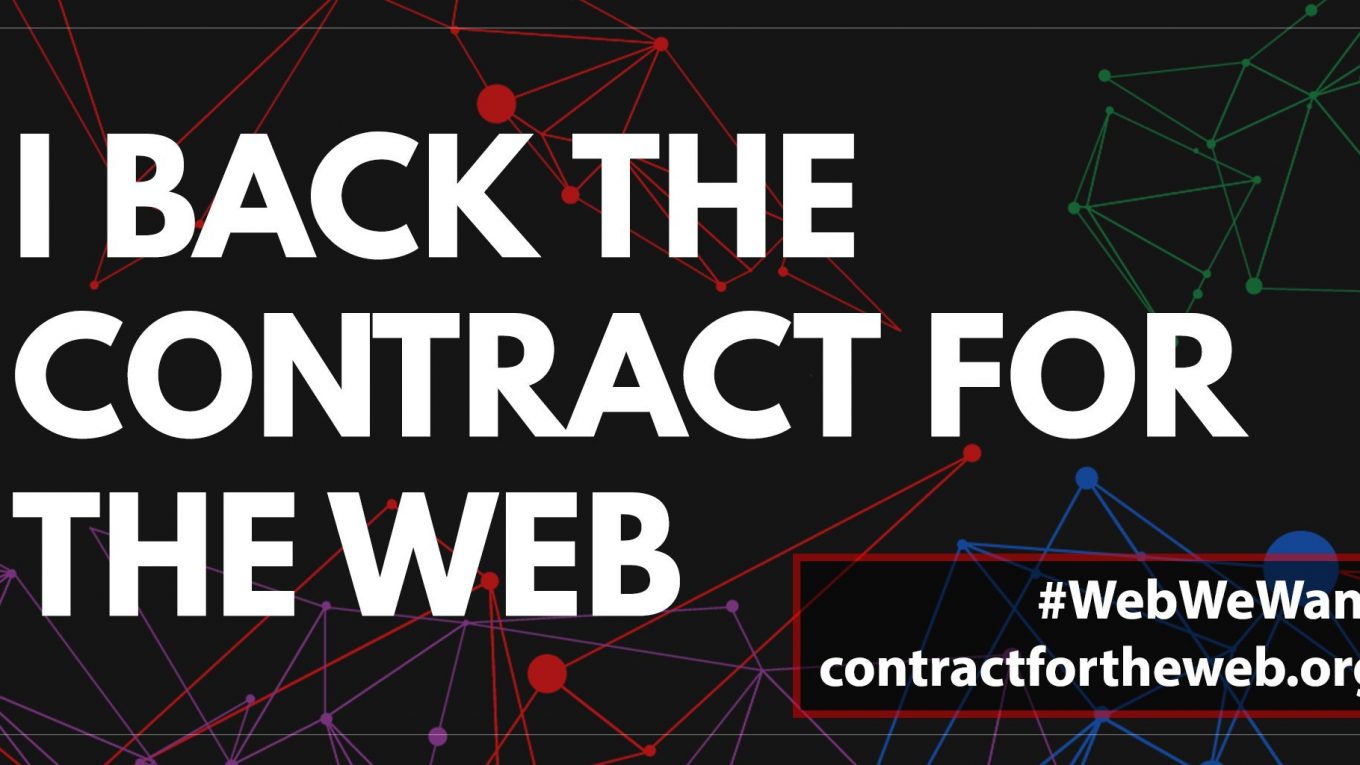Contract for the Web
“A global plan of action to make our online world safe and empowering for everyone”
Contract for the Web
Last week I wrote a couple of blog posts that, well, just didn’t sit right with me (and had no real point either, other than a weak rant). So I deleted them. Through my mumbling and rambling mind I was writing about the true state of the internet as I see it, the rise and continued rise of trust, fake news, politicians and political viewpoints, climate, the dreaded #Brexit, and much, much more. I did have a point, that related to work, learning, students, etc but it was lost in the noise of the rant.
Which brings us, in a timely manner, to today and Tim Berners-Lee’s launch of the Contract for the Web.
Why have I signed it? Simple … I believe the internet can engage and improve our understanding of our environment, our physical, emotional, cultural and financial environments, and that together we can use it to improve the lives of others who are less able than ourselves. This is clearly not everyones intention. Whatever you think of the big tech companies and their use of data, your data, there is a disconnect between that is ‘right’, what is ‘right for me’, what is ‘right for them’ and what is ‘right for everyone’.
Whilst it may be legal for these big companies to move their business around the world and pay no tax, doens’t make it ‘right’ or ethical, especially if they are also accused of questionable standards their employees have to work under. Knowledge and power (and money) enables this. But it isn’t ‘right’.
“Everyone has a role to play in safeguarding the future of the Web. The Contract for the Web was created by representatives from over 80 organizations, representing governments, companies and civil society, and sets out commitments to guide digital policy agendas. To achieve the Contract’s goals, governments, companies, civil society and individuals must commit to sustained policy development, advocacy, and implementation of the Contract text.”
Tim Berners-Lee
The Contract for the Web aims to level the playing field, that everyone has a basic right to information, and that information should be consensual, truthful, respectful and free from racial or sexual bias. The contract brings experts and citizens together, with their “diverse range of experiences and perspectives — to build a global plan of action to make our online world safe and empowering for everyone.”
Ironically, large tech firms that have previously been accused of being the very organisations that have enabled the web to corrupt nad monetise our very existence (Goolge, Facebook, Twitter, etc) are also, for the moment, on the list of signatories.


















